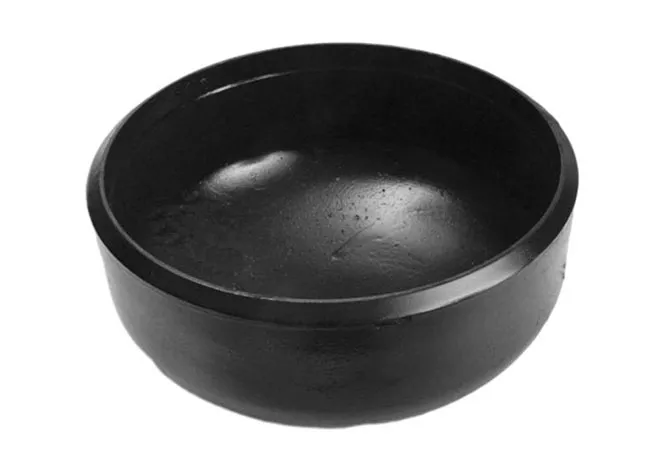-
Cangzhou Yulong Steel Co., Ltd.
-
Phone:
+86 13303177267 -
Email:
admin@ylsteelfittings.com
- English
- Arabic
- Italian
- Spanish
- Portuguese
- German
- kazakh
- Persian
- Greek
- French
- Russian
- Polish
- Thai
- Indonesian
- Vietnamese
- Zulu
- Korean
- Uzbek
- Hindi
- Serbian
- Malay
- Ukrainian
- Gujarati
- Haitian Creole
- hausa
- hawaiian
- Hebrew
- Miao
- Hungarian
- Icelandic
- igbo
- irish
- Japanese
- Javanese
- Kannada
- Khmer
- Rwandese
- Afrikaans
- Albanian
- Amharic
- Armenian
- Azerbaijani
- Basque
- Belarusian
- Bengali
- Bosnian
- Bulgarian
- Catalan
- Cebuano
- China
- China (Taiwan)
- Corsican
- Croatian
- Czech
- Danish
- Esperanto
- Estonian
- Finnish
- Frisian
- Galician
- Georgian
- Kurdish
- Kyrgyz
- Lao
- Latin
- Latvian
- Lithuanian
- Luxembourgish
- Macedonian
- Malgashi
- Malayalam
- Maltese
- Maori
- Marathi
- Mongolian
- Myanmar
- Nepali
- Norwegian
- Norwegian
- Occitan
- Pashto
- Dutch
- Punjabi
- Romanian
- Samoan
- Scottish Gaelic
- Sesotho
- Shona
- Sindhi
- Sinhala
- Slovak
- Slovenian
- Somali
- Sundanese
- Swahili
- Swedish
- Tagalog
- Tajik
- Tamil
- Tatar
- Telugu
- Turkish
- Turkmen
- Urdu
- Uighur
- Welsh
- Bantu
- Yiddish
- Yoruba

Nov . 12, 2024 00:27 Back to list
mandrel bending rectangular tubing
Mandrel Bending Rectangular Tubing An Overview
Mandrel bending is a crucial process in the fabrication of metal components, particularly when it comes to shaping rectangular tubing. This technique combines precision engineering with the need for aesthetic appeal and structural integrity, making it a popular choice in various industries, from automotive to construction.
What is Mandrel Bending?
Mandrel bending refers to a method of bending metal tubing while maintaining its cross-sectional shape. Unlike standard bending processes, which can lead to distortion or deformity in the tube’s profile, mandrel bending utilizes a mandrel, or internal support, that prevents such issues. The mandrel is inserted into the tubing before the bending occurs, which supports the interior and allows for smooth, even bends.
Importance of Rectangular Tubing
Rectangular tubing is widely used in structural applications due to its robustness and ability to handle various loads. Its shape makes it ideal for applications that require both strength and flexibility. However, bending rectangular tubing without affecting its structural integrity can be challenging. This is where mandrel bending technology excels.
Maintaining the integrity of a rectangular section during the bending process is essential, as any deformation could lead to weakness or failure in the final product. Mandrel bending ensures that the corners and edges of the tubing remain sharp and defined, which is important not only for functional reasons but also for aesthetic considerations.
The Mandrel Bending Process
The process of mandrel bending involves several steps
mandrel bending rectangular tubing

1. Preparation The rectangular tubing is cut to the desired length, and all necessary measurements are taken to ensure accuracy.
2. Mandrel Insertion A mandrel, typically made of a harder material than the tubing, is inserted into the tube. This mandrel can take various forms, depending on the desired bend radius and angle.
3. Bending The tubing is then placed in a bending machine. As the machine applies force, the tubing begins to bend around the mandrel. The support provided by the mandrel allows the tubing to maintain its shape, preventing collapse or wrinkling.
4. Finishing After the bending is complete, the mandrel is removed, and the tubing is inspected for quality. Any necessary finishing work, such as welding or cutting, is done at this stage.
Applications of Mandrel Bending
Mandrel bending of rectangular tubing is employed across numerous fields. In the automotive industry, for example, it is used to create frames and structural components that require precise curves. In construction, it serves to fabricate supports, railings, and architectural features that not only meet building codes but also enhance the overall design.
The versatility of mandrel-bent rectangular tubing also extends to furniture design, where designers seek unique shapes while ensuring durability. Additionally, industries such as aerospace and marine benefit from this technology, as it allows for the creation of lightweight yet strong components essential for performance and safety.
Conclusion
Mandrel bending of rectangular tubing is a sophisticated technique that enhances the fabrication capabilities of metal components. By retaining the tubing's structural integrity while allowing for intricate designs, mandrel bending stands out as an invaluable process in modern manufacturing. Its applications are vast and varied, spanning numerous industries, and its importance continues to grow as innovation drives new design possibilities. As technology advances, the efficiency and precision of mandrel bending are likely to improve, further solidifying its place in the metalworking landscape.
Latest news
-
ANSI 150P SS304 SO FLANGE
NewsFeb.14,2025
-
ASTM A333GR6 STEEL PIPE
NewsJan.20,2025
-
ANSI B16.5 WELDING NECK FLANGE
NewsJan.15,2026
-
ANSI B16.5 SLIP-ON FLANGE
NewsApr.19,2024
-
SABS 1123 FLANGE
NewsJan.15,2025
-
DIN86044 PLATE FLANGE
NewsApr.19,2024
-
DIN2527 BLIND FLANGE
NewsApr.12,2024
-
JIS B2311 Butt-Welding Fittings LR/SR 45°/90° /180°Seamless/Weld
NewsApr.23,2024











